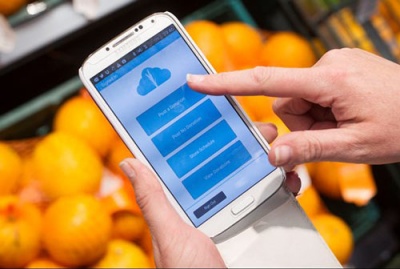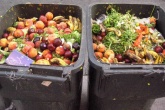Supermarkets grilled on food waste initiatives

The Environment, Food & Rural Affairs (EFRA) Committee spoke to representatives from Tesco, Sainsbury’s, Waitrose and Morrisons on Wednesday (18 January) as part of its inquiry into the economic, social, and environmental impact of food waste in England.
Speaking at the inquiry’s first session in November, food waste campaigners Hugh Fearnley-Whittingstall and Tristram Stuart both said that supermarkets should be held to account for their role in the unsustainable levels of food waste in the UK.
The two suggested a range of measures that should be imposed on large retailers including new national targets, better labelling and an independent ombudsman to oversee supermarkets dealings with suppliers, but agreed mainly that the most pressing need was for supermarkets to be more transparent about the amount of food they waste.
Supply chain waste
At a second inquiry session in November, meanwhile, Lindsay Boswell, Chief Executive of FareShare, also pointed out the importance of addressing food waste in the supply chain, where nearly all of supermarket-generated waste occurs. He said: “A piece of work that WRAP did for Tesco, the first supermarket that was open and transparent about its food waste, showed that one per cent of that amount of food was at a retail level. The vast majority of the rest of the food is in the supply chain. By that I mean the distribution centres, packing houses, production, and the manufacturers in particular, right back to farm gate.”
Although this session with the supermarkets touched upon the supply chain, with several of the retailers referencing the above figure and saying they are working with suppliers, the bulk of the session did not investigate solutions for this much larger problem, instead focusing on in-store waste measurement and redistribution.
Transparency
 Until last year, Tesco was the only major supermarket to annually publish its food waste statistics. Last June, Dave Lewis, the retailer’s CEO and chair of Champions 12.3, a coalition addressing the UN’s goal of halving per capita food waste by 2030, called on other members of the industry to report their figures to aid the development of programmes to tackle identified areas of waste.
Until last year, Tesco was the only major supermarket to annually publish its food waste statistics. Last June, Dave Lewis, the retailer’s CEO and chair of Champions 12.3, a coalition addressing the UN’s goal of halving per capita food waste by 2030, called on other members of the industry to report their figures to aid the development of programmes to tackle identified areas of waste.
Sainsbury’s published its data for the first time in September, revealing that the supermarket cut its food waste by 10 per cent in 2015/16.
Tim Smith, Group Quality Director at Tesco, told the EFRA panel that transparency is of the upmost importance and that having more supermarkets record waste at a category level (i.e. which specific kinds of items are being wasted) would enable the industry to identify ‘hotspots’ that can be approached in a unified way.
However, each of the four supermarkets represented at the session records its waste using different methods. While Waitrose records the average bin weight (and is using a new compositional analysis to ascertain how much is inedible), Morrisons ‘capture[s] information financially at store level’ and Sainsbury’s measures its waste in tonnage but doesn’t go down to category level.
Tesco, meanwhile, captures data on a category basis at store level, and so says it can calculate ‘each day and each store’s waste’. The supermarket uses metrics developed by the World Resources Institute, which were launched to provide a way for governments and businesses to consistently define and measure food waste.
Smith said that through this process, Tesco has been able to identify food waste hotspots throughout its stores. The in-store bakery has been found to create the most waste, and so efforts can be focused on cutting down that waste (though the Real Junk Food Project last year campaigned against the practice of intentionally overbaking products).
Do supermarkets need a national target?
When asked about the possible effect of a national target, all four of the panel pointed to the strictly voluntary Courtauld Commitment as a goal to work towards.
WRAP last week published results from the third stage of its grocery supply chain agreement the Courtauld Commitment, revealing that signatories had hit a goal of reducing food and packaging waste by three per cent between 2012 and 2015, but had failed to make any discernable impact reducing household food waste, which actually increased by around four per cent despite a five per cent reduction target.
A new stage of the agreement, Courtauld 2025, was launched last year, aiming to reduce food and drink waste by 20 per cent by 2025. The use of voluntary targets has been criticised as too weak by many campaigners, but Steven Butts, Head of Corporate Responsibility at Morrisons, told the committee that the store “does not treat Courtauld like a voluntary agreement”.
The prevailing opinion from the group was that the trick was to get more businesses to sign up to the agreement, which for Courtauld 2025 is also including companies from the hospitality sector and local authorities to provide a wider reach and join up approaches across sectors.
Despite the acceptance of Courtauld as a suitable target, Butts suggested that there is “renewed interest” in the Department for Environment, Food & Rural Affairs (Defra) to lead, especially through its upcoming 25-year plan. The man from Morrisons said that he hoped that Defra would be able to tie work from across the sector to government policy.
Redistribution

Speaking about ways to increase redistribution, the supermarkets praised the advent of apps that pair retailers with charities to find use for surplus products. Waitrose this week became the latest supermarket to sign up to the FareShare FoodCloud app, which has been used by Tesco since 2015.
According to Victoria Harris, Waitrose’s Head of Sustainability and Responsible Resourcing, the unpredictability of waste from supermarkets meant that charities and community groups often felt it wasn’t worth their time to go to shops on the off chance they had surplus goods. Marks & Spencer uses a similar app, neighbourly Food, while Sainsbury’s, Waitrose and M&S have also partnered with the Felix Project, a charity that collects waste from warehouses and depots and redistributes it.
In France and Italy, laws have been passed in the past year to compel supermarkets to arrange redistribution contracts with charities. In France stores over a certain size must do so or face penalties, while Italy is providing tax breaks to retailers that redistribute, with red tape also being slashed.
Former Shadow Environment Secretary and EFRA Committee member Kerry McCarthy introduced a bill similar to the French one in Parliament last year, but it was quashed by the government’s preference of voluntary agreements.
Louise Evans, Director of Corporate Affairs at Sainsbury’s, said that the will would be there in the supermarket to address issues like in France, but that it would have to be enforced across the board to ensure a level playing field, while Smith argued that there was no need for the incentive of tax breaks or legislation, and that redistribution is moving in the right direction at a fast enough pace.
Labelling
The session ended with a discussion on labelling, with confusion over the difference between ‘best-before’ and ‘use-by’ labels considered by many to be an unnecessary factor in causing household food waste.
Tesco’s Smith contended that it was “critical” to keep ‘use-by’ dates for health reasons, and that ‘best-before’ labels protect the quality of the brand. He called the issue a “generational problem” where people only trust the durability code and don’t use their own thoughts and processes and ‘best before’ becomes a surrogate for ‘use by’.
Before changing the labelling system, he said, education would need to be improved, saying that doing so was a responsibility of retailers and the government. He added that research is being conducted as to what ‘best before’ could be changed to.
A recording of the EFRA Committee session can be watched on ParliamentLive.tv. 










